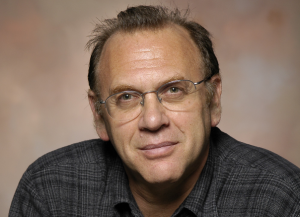In Memory of Dr. Clyde Hertzman
(1953-2013)
It was with shock and tremendous sadness that I learned the news of Dr. Clyde Hertzman’s sudden passing last week in London, England.
Clyde was a prolific and brilliant scholar. He was the Director of the Human Early Learning Partnership (HELP); Canada Research Chair in Population Health and Human Development and Professor in the School of Population and Public Health at UBC; a Senior Fellow of the Experience-Based Brain and Biological Development Programme and the Successful Societies Programs of the Canadian Institute for Advanced Research (CIfAR); a Fellow of the Royal Society of Canada and the Canadian Academy of Health Sciences. He was the recipient of the Canadian Institutes of Health Research (CIHR) 2010 Canada’s Health Researcher of the Year and, shortly before his death, was made an Officer of the Order of Canada in 2013.
I first came to know Clyde when I was a psychometrics (applied statistics) doctoral student in UBC’s Department of Educational and Counselling Psychology and Special Education. Soon after the completion of my PhD, I came to HELP to pursue a post-doctoral fellowship, during which Clyde kindly served as my research supervisor. Armed with HELP’s rich longitudinal population data holdings — painstakingly gathered under Clyde’s leadership over the course of a decade — we got to work co-authoring several papers that outline how the development of physical, social-emotional, and language-cognitive capacities in children’s early years matter for health, education, well-being, and behaviour across the balance of the life course. After the completion of my post-doc, I transitioned into a Research Associateship with HELP, motivated primarily by my desire to continue working with Clyde.
During the seven years I knew him, Clyde became, to my great fortune, a friend and a sort of academic father. During our coffee chats and breakfast meetings, while he and I were mulling over the results of complex statistical analyses, he’d pass down sage advice to me — from how to frame certain issues in papers, to how to achieve some semblance of work-life balance, to telling me to quit it when I was acting like too much of a “clipboard-carrying technocrat” (something he teased me about often).
Much has been written about Clyde’s many accomplishments, and rightly so. But it has been said that folks won’t always remember what you did in your life. They will, however, remember how you made them feel. Clyde made me feel important to his vision and to HELP. He made me feel that I had something special to offer the world of research. He helped me to believe in myself, to believe in my abilities. He made me see my strengths and offered me constructive strategies for tackling my weaknesses. He gave me innumerable exciting opportunities to grow and learn, to present my work to various audiences, and to network with scholars from all sorts of disciplines. He supported my applications to various funding agencies, as well as giving me the honour of nominating me as one of HELP’s inaugural Djavad Mowafaghian Foundation Junior Scholars. As my HELP colleagues will surely agree, he made work feel not like “work” but rather like a gathering place of like-minded individuals who were committed to making the world a better place for families and their children. I take heart knowing that, under his tutelage, a new generation of researchers is poised to continue carrying his torch forward.
I also take great heart knowing that, before he died, I had the good fortune of telling him how I felt about him. Shortly after he had received his Order of Canada honour, I hugged him and said to him, “I’m proud of you.” I then rather cheekily asked him, “Does this mean I have to curtsey when I see you now?” With a glint in his eye, he immediately retorted, “No, you just have to sing me the ‘Land of Hope and Glory’.” A lover of khakis and fleece vests, Clyde was famously self-effacing and humble, and rarely took himself too seriously. So he and I had a good chuckle over that exchange.
I’ll miss his electric personality, his expansive vision, his razor-sharp insights, his deep-rooted sense of social justice, and his inspiring views of how the world can, and should be, for its young children. I’ll miss his refreshingly direct manner of communicating, his quick wit, and his gentle and caring ways. He truly was one of the good guys and unquestioningly one of the great scientists of our time.
I extend my condolences to his family – especially to his partner, Marcy, his children, Eric, Emily, Amos, his brother, Owen, and his mother, Eileen.
Rest in peace, boss, and thank you.
Jennifer E. V. Lloyd
February 13, 2013
~ If I have seen farther, it is by standing on the shoulders of giants.~

